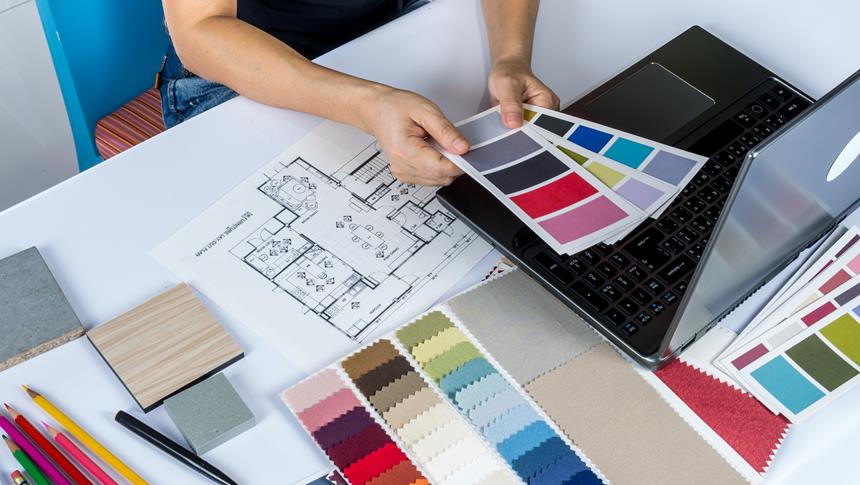Considered a dream job by many creatives, a role in interior design may seem unattainable to most, but it’s a whole lot easier if you know what you need to get your foot through the door. Read on to find out more about what an interior designer does, and the skills and qualifications you need to become one.
The role
Interior designers – and spatial designers – combine their creative and project management skills and knowledge of architecture to create plans for the design or renovation of indoor spaces. They will be expected to make decisions regarding a variety of features around the home, office, or whichever other type of space they may be working with, including colour schemes, light fittings and furnishings.
Interior designers will usually work in one of three sectors: domestic, commercial or leisure. Those working in the domestic market are most likely to focus solely on aesthetics. Designers in the other sectors will likely have to take structure into consideration as well.
The day to day life of an interior designer can vary, but will likely include some of the following tasks: carrying out feasibility studies for projects, researching and photographing project areas, presenting mood boards with relevant ideas to clients, sourcing products for the design and creating CAD drawings for potential designs.
Skills and qualifications
To become an interior designer, you will almost certainly have to have a relevant qualification, whether that’s a degree, foundation degree or HND. Any of the following subjects could provide you with a way into the industry:
- Interior design
- 3D design
- Architecture
- Fine art
- Product design
- Furniture design
If academic qualifications aren’t for you, you can always try industry-specific training in software relevant to interior design.
Besides qualifications, there are particular skills and qualities which are really important you build upon. These include:
- Hand drawing
- Computer-aided design
- Knowledge of building regulations and restrictions
- Strong communication and negotiation
- Highly organised
- Creative
Salary
According to data from payscale.com, the average interior designer in the UK earns around £24,500, which can rise as you gain more experience. They also note that project management skills are likely to earn you a higher salary in this line of work.
Career development prospects
If you’re a newly qualified designer, you’ll likely work alongside someone with industry experience, learning from them as you progress through the first year or two of your career. Essentially, it’s common for those who have just qualified to act as assistant, before becoming fully immersed into interior design work.
Studying further is a great way to increase your knowledge and develop your skillset and will help you progress up the career ladder. Working to build a portfolio as you progress is important, as this will help you secure other roles in the future, whether as a freelancer or working as an employee.

